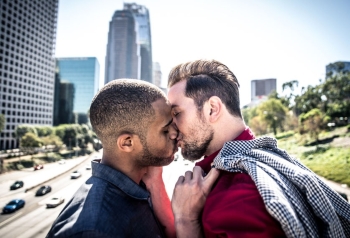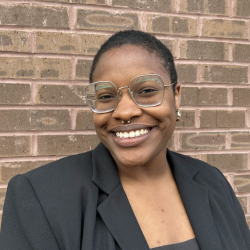
While many therapists are “couples counselors” not all couples counselors are trained in all types of couples counseling. Gay and lesbian couples, while similar to heterosexual couples have slightly different issues to contend with. A counselor who has heterosexist biases are more likely to miss some of the subtleties. Premarital counseling can be effective for same-sex couples provided that specific needs and problems that same-sex couples face are addressed. Premarital counseling can help you and your partner understand what marriage between the two of you will look like. To help guide you in your decision, make sure to select a counselor who is competent in the specific challenges addressed below that same-sex couples face.
Specific Challenges for Same-Sex Couples
Creating Legal Protection. It might be important for you to have legal protection that not only legally but emotionally validates your relationship. Unfortunately there are few laws that protect the rights of same-sex couples. Even if you do get married in a state that recognizes same-sex unions, you may move to another state in which your marriage is not recognized. Furthermore no legal or formal barriers exist regarding separation or child custody. Due to the lack of legal protection, it is important that you and your partner decide what is best for you. For some couples moving to a state in which their marriage would be legally recognized is important. It is important that you and your partner determine how you would like your union to be recognized given the legal framework. The lack of normative and legal templates for same-sex relationships and the lack of presence and impact of role models can also make it difficult for same-sex couples to gauge what a “successful” same-sex marriage or life partnership looks like. It may be important for you and your partner to explore your ideas about what a successful same-sex marriage is. Identifying role models for life partnership may also be helpful. Consulting with these role models about creating legal protection may also prove helpful.
Navigating the current culture. Unfortunately not everyone will look favorably on your union due to homophobia and heterosexism in our culture. You and your partner may have different comfort levels about how to respond to homophobia. Despite these differing comfort levels it is important for each partner to share the expectations they have about responding to homophobia. Think about what you expect of yourself and of your partner when responding to homophobia. You must come to an understanding of how to support one another when interacting with others. An exploration of how the couple already copes with the strain of homophobia should be explored to identify both strengths and areas for improvement. It will likely be important to address the issue of self-care in dealing with these stressors. Think about how each partner can get the self-care he or she needs to cope with homophobia and heterosexism. For instance, one partner may prefer coping via strenuous workouts while another may prefer to meet their self-care needs by talking with a close friend. Despite differences in the ways each partner may deal with this stress, it is important for each same-sex partner to identify self-care activities they can also engage in together. Having activities that meet your self-care needs and allow both you to spend time with your partner can facilitate feelings of closeness and strengthen the relationship.
Defining the level of “outness”. Defining the level of outness for the couple involves setting expectations for each partner’s level of outness. Some same-sex couples vary in their level of “outness.” Some individuals are simply at different stages of their identity development. For others, their level of “outness” is impacted by their culture or ethnicity. Minorities may choose to conceal their gay or lesbian identity if they anticipate discrimination from their family or racial/ethnic group. While you may not agree with your partner’s level of “outness” you should understand and respect their reasons for their level of “outness.” It may be important for you and your partner to explore how each of your levels of “outness” impacts the relationship and your partner. Discussing each partner’s ideal level of “outness” as an individual and for your relationship may be helpful. Remember, level of “outness” will likely change over time as factors in each of your lives change (relationship with family, work environment, community where you live).
Incorporating your partner into family life. Tensions are often felt between the individuals’ family and their desire to incorporate their partner into their family life. Even if a gay or lesbian couple is acknowledged by family members they may still be treated marginally. Many couples belong to a “chosen” family, which is comprised of supportive friends, family members, or even former lovers. The “chosen” family is often just as important as the family of origin. You and your partner may find it helpful to explore how you can incorporate your partner into family life without your partner feeling marginalized or having your relationship invalidated. It is important for you to explore the expectations you have of how your partner if their family is not accepting. What do you need from your partner if their family is not accepting? How do you and your partner work together in negotiating conflicts about your relationship with your family of origin? Perhaps there are only certain family members you interact with or only certain family events you participate in. It is likely helpful to discuss and identify your “chosen” family. Furthermore, what level of support would each of your like from your family of origin and “chosen” family? How would you each like to incorporate your family of origin and “chosen” family into the family you are starting with your partner.
Similarities Between Same-sex and Heterosexual Couples
While there are important differences between same-sex and heterosexual couples, there are still many similarities. All couples who make life commitments to each other should discuss financial planning, family planning, in-law relationships, sexual issues, the division of household responsibilities, career challenges, etc. Premarital counseling typically covers these issues and thus provides the couple with a way to talk about important issues they may not normally address. For each couple, there are usually a few specific topics that are sources of tension in the relationship. Premarital counseling provides a constructive format for these issues to be addressed and to hopefully be better understood by each partner. Not only do couples explore the problem, but they learn more effective communication skills to negotiate the problem with each other.
A similarity between same-sex couples and heterosexual couples is patterns of communication. Regardless of whether the couple is same-sex or heterosexual it is not uncommon to hear, “She just doesn’t want to what I’m saying,” “I’m not a mind reader! If he doesn’t tell me how he’s feeling, how am I supposed to know?” “We just can’t seem to talk about that without getting into a screaming match.” Strong communications skills are imperative for all couples. Premarital counseling can be useful in helping you and your partner prepare for committing your lives to each other by increasing the level and quality of communication. Another aim of premarital counseling that applies to both same-sex and heterosexual couples is for couples to have more awareness about the strengths and weaknesses of their relationship. Understanding the strengths you and your partner have, as well as the aspects of the relationship that need growth, is especially important for all couples to understand as they make the step of committing their lives to each other.
In summary…
As described above, there are many benefits of premarital counseling. As you take the exciting next step of life partnership, consider premarital counseling with a couples therapist who will address the specific needs of same-sex relationships.


























